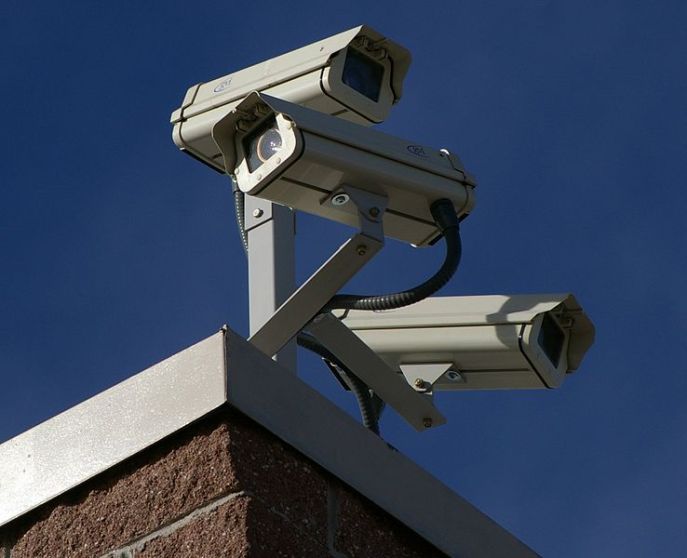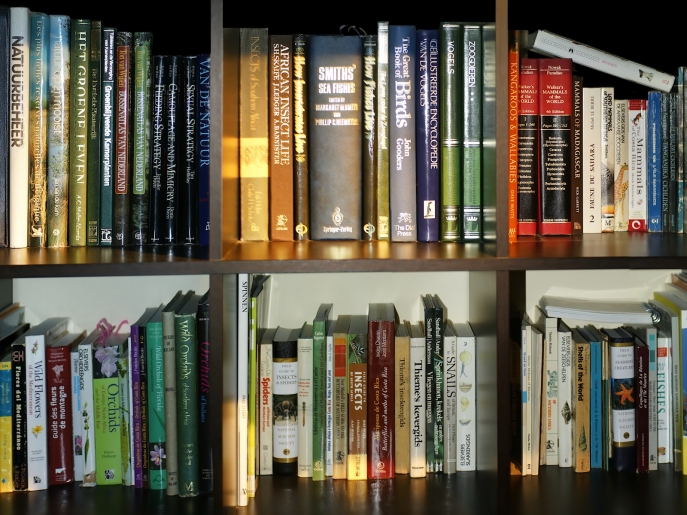Spring has arrived, but winter has barricaded the door. I’m in a dark mood.
At times like this, I admit that I don’t always keep my paranoia on a leash. In fact, I often let it run wild, allowing it to chase hare-brained rabbits down various trails or follow the scent of little chickens warning that the sky is falling.
Naturally it’s not my fault I’m so paranoid. I blame it on the book 1984 by George Orwell. I don’t know about your mind, but in my mind, for pure fear, no other book comes close. * On the dystopian spectrum, it’s on the far end of terror.
On the other end, in what could be called the “happy” dystopia, lies Aldous Huxley’s novel Brave New World. Published in 1932, it envisions a world of people manacled by drug-induced happiness, materialism, and sex, a world that sounds surprisingly like our own. Seventeen years later, post-World War II, Orwell published his book, depicting a world enslaved by fear, with a seemingly benevolent Big Brother in control of past, present, and future.
In the actual year 1984 at a panel convened to discuss Orwell’s dystopia and the modern world, the educator Neil Postman proposed that contemporary Western society reflected Huxley’s view of the future rather than Orwell’s. Postman equated the entertainment industry with the drug soma that people in Brave New World used to escape into happiness. The following year Postman published his insights in a book called Amusing Ourselves to Death. If you haven’t had a chance to read it, I encourage you to do so.
I tend to agree with Postman, yet North Korea stands as a reminder that Orwellian governments can and do exist. My own fear is that the two will blend, and we’ll end up with a Brave New 1984: a populace condemned to artificial happiness found in drugs, sex, acquisition, and entertainment, who relinquishes all control to a Big Brother who will not allow anyone off Paradise Island.
While brooding through winter’s siege, I have been reading about school libraries closing due to budget cuts and others removing their books because of the availability of so much online information. Why bother funding libraries and librarians when you have Google? Why house all those dust-loving books when they can be downloaded and read on e-readers?
My paranoia and I find this disturbing. Online information is stored at physical locations. Whoever owns these data centers effectively owns the information, as does whoever controls the electricity and power grid that allows people to access the servers or charge their electronic devices. As long as there are everyone checks and balances, and everyone involved believes in net neutrality and open access, we are fine. But what happens if unchecked power controls access?
You can’t turn off a book. And you don’t need electricity to read one. We need books, and we need libraries full of books. Children especially need a place to go to explore the world of ideas, a quiet place to read books of their own choosing.
I’m not against e-books and online copies. I enjoy my electronics. They have their place, and that place is next to books, not in place of books.
*Cormac McCarthy’s novel The Road would equal 1984 on the terror scale if it were a sustainable world. It is a dying world that will end; the horror of 1984 is that there is no end in sight.
Photos: Big Brother: Paternm Surveillance Cameras: Hustvedt Books: © Hans Hillewaert / CC-BY-SA-3.0




